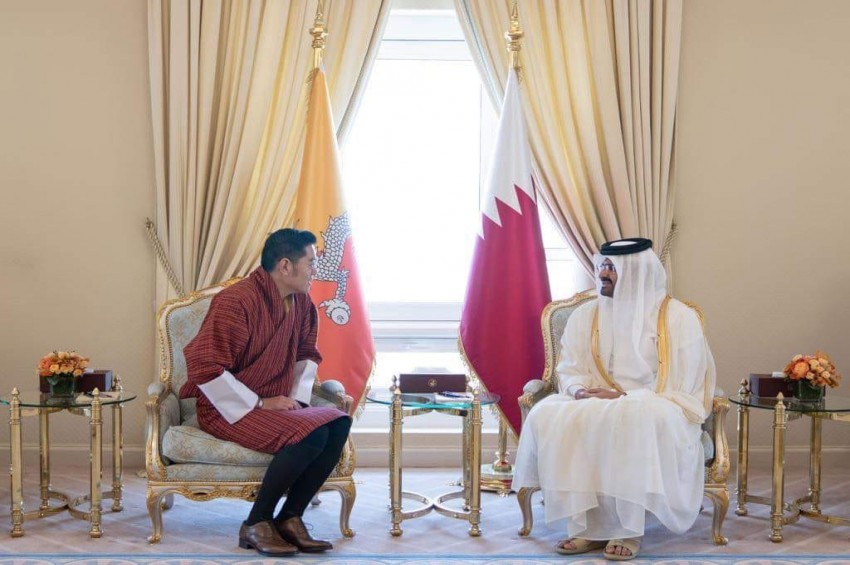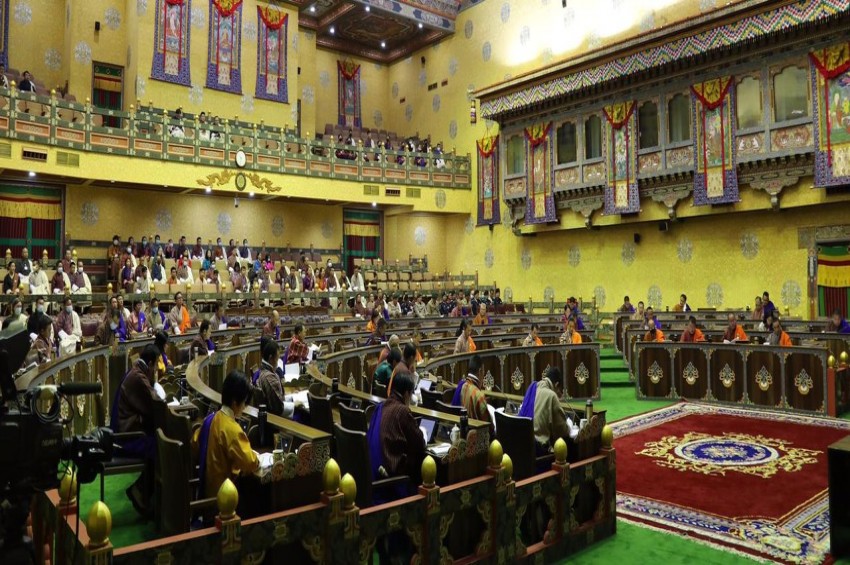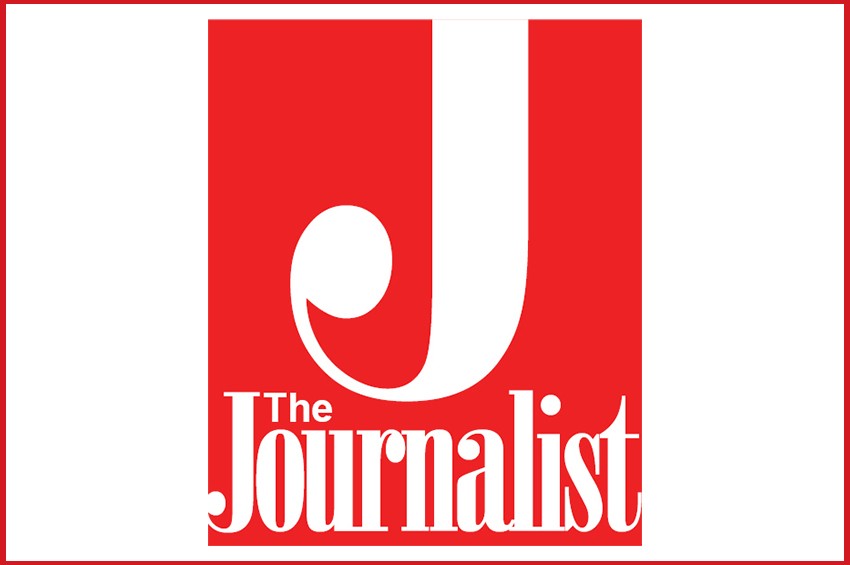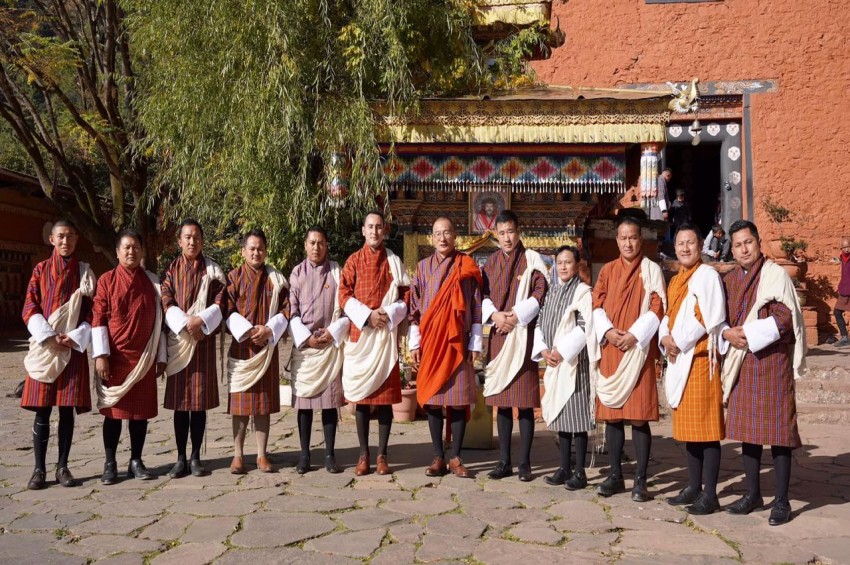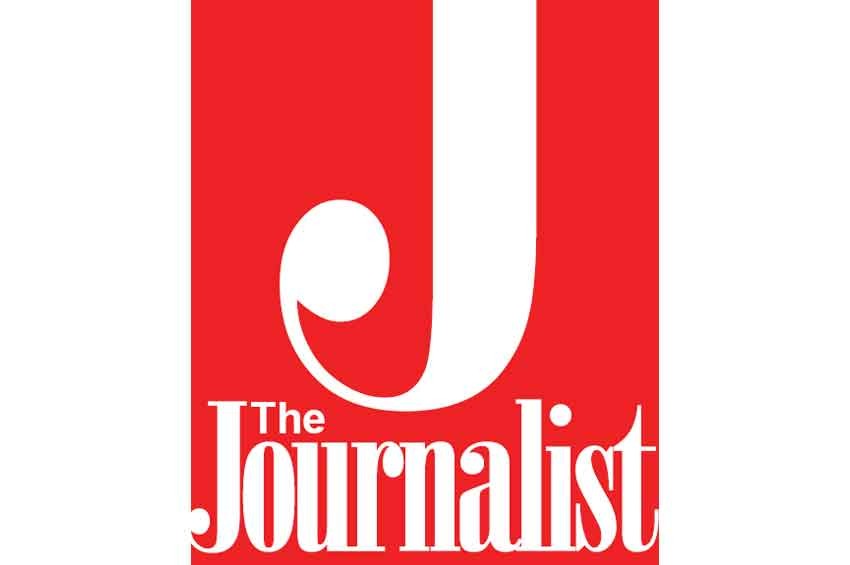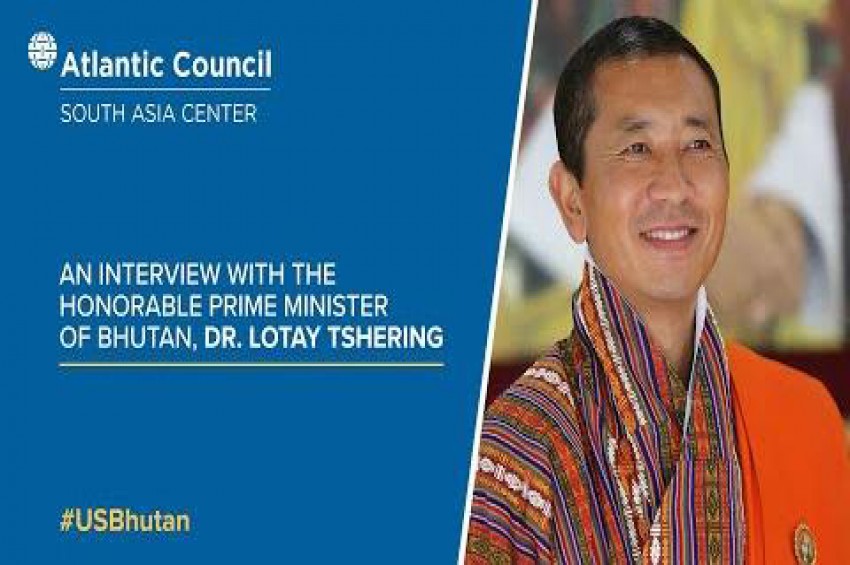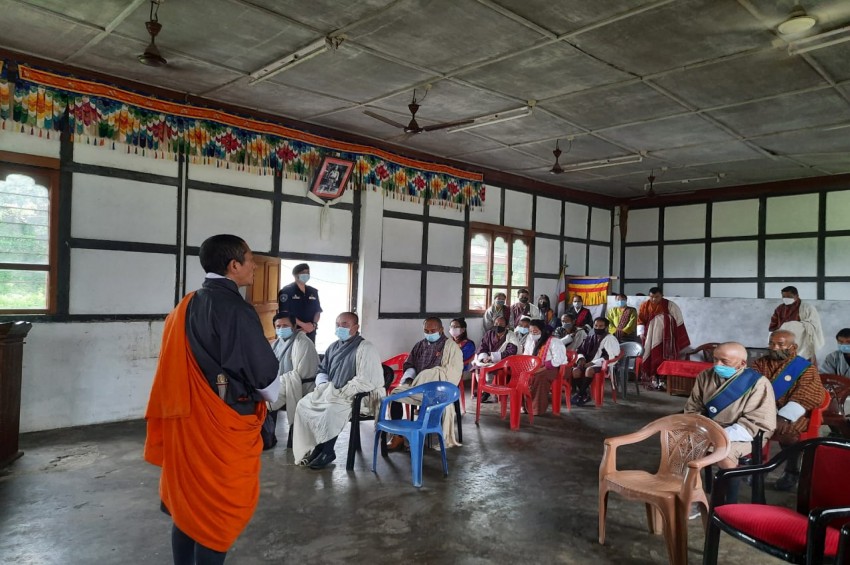In what many say is a very positive indicator that democracy in Bhutan is deepening and that people are participating in the process directly and indirectly, several people from different districts have already begun to prepare for the Fourth National Council (NC) elections, that will be held in 2023.
While the election commission of Bhutan (ECB) has not announced the dates for the elections, the Third NC elections, were held on April 20, 2018. It saw 128 aspiring candidates including seven women from all 20 dzongkhags registering with the election commission of Bhutan. From these, 94 has a Bachelors degree, 28 had a Masters degree, five were postgraduates and one had a doctorate (PhD).
Among the dzongkhags, Dagana saw the highest number of aspiring candidates with 18 registering for the seminar, followed by 13 from Monggar and 10 from Tsirang. Only one registered from Bumthang, while Trongsa and Wangdue saw two each. On an average, there were 6.4 candidates per dzongkhag.
Seeking anonymity, one aspirant for the 2023 NC elections said he had made the “conscious” decision about three years back. “Since then, I have been visiting my gewog and adjoining gewogs,” he said, adding he just communicated to the people that he may contest. “The people said it was a very good decision and I am now receiving calls that I should contest,” he said. “I have also heard that other aspiring candidates have submitted applications for resignations, while those who are not civil servants are in their gewogs.” When asked why he decided to join the NC, he said that though the NC is a House of Review, it is very important to come out with policies that will help achieve His Majesty’s vision of the country. “Political parties can make pledges, but laws should be favourable for development and I think I can contribute in this area,” he said.
When asked about his chances to win, he replied that “the first part to prepare for any battle is to keep in mind that you can lose.” “Yes! Definitely, everyone will want to win. However, one should be ready to accept defeat, too,” he said. According to him, he has heard that there are about 12 people who have already decided to contest in the elections from his dzongkhag.
Another aspiring candidate, yet to resign said he has decided to contest as no one has contested from his gewog so far in any national elections. “Several people from my gewog approached me saying I would be able to contribute more as a member of the NC.” However, he has not yet started mobilizing support. “I want to do it right after I resign. Though people say that there is not much time, I believe that if you are genuine and people see that in you, they will support you,” he said, adding that the voters of Bhutan have gained a lot of experience. “I think people can easily know who would serve them best,” he said.
On deciding to contest for the NC, he said that just as the civil service reforms, there is need to amend and introduce new laws. “For instance, our laws should be in harmony with laws of other countries. If not it will be difficult to attract foreign direct investment (FDI). Similarly, I see the need for new laws with the advent of technology,” he said. Just as the former aspiring candidate, he also said that he heard there are several candidates from his dzongkhag. “This is good and healthy. People will have choice,” he said.
Meanwhile, people that The Journalist spoke to said it is easier to solicit support on behalf of NC candidates. “As it is apolitical, people do not hesitate to speak about it. Moreover, it also makes our work of supporting candidates easier,” Tshering Dorji from Thimphu said. Tshering added that as there are usually representatives from all gewogs, the total number of voters in a gewog matter. “Further, if one gewog does not have any candidate, aspiring candidates focus on those gewogs,” he said.
According to Article 11, Constitution of Bhutan, The National Council shall consist of twenty-five members comprising: (a) One member elected by the voters in each of the twenty Dzongkhags; and (b) Five eminent persons nominated by the Druk Gyalpo.
Article 11, Section 2 says, “Besides its legislative functions, the National Council shall act as the House of review on matters affecting the security and sovereignty of the country and the interests of the nation and the people that need to be brought to the notice of the Druk Gyalpo, the Prime Minister and the National Assembly.
Moreover, a candidate to or a member of the National Council shall not belong to any political party.
The 2018 NC elections saw a record voter turnout with 54.3 percent of the total registered voter population of 432,030 voting. It was an increase of 9 percent from the turnout in 2013, when 171,564 (45.15 percent) of the total 379,819 eligible voters participated. Of the total 234,535 voters, 169,623 (89,316 female and 80,307 male) cast their votes in person using electronic voting machines at the 866 polling stations; additionally, 64,912 voters (26,493 female, 38,419 male) opted to use postal ballot facilities. Of those, 42,441 voted through the 64 postal ballots facilitation booths and nine mobile facilitation booths on April 12, 13, and 14. About 22,471 used the conventional postal ballot facility.
The 234,545 voters surprised incumbent members, with only 5 incumbent councilors who made it to the final round re-elected. The people elected at least two of the six women candidates. Bhutanese voters also voted for a set of representatives at the prime age of their life. The average age of the 20 councillors-elect was 40. The oldest was 54 and the youngest 31. All came from diverse background and experiences.
While the election commission of Bhutan (ECB) has not announced the dates for the elections, the Third NC elections, were held on April 20, 2018. It saw 128 aspiring candidates including seven women from all 20 dzongkhags registering with the election commission of Bhutan. From these, 94 has a Bachelors degree, 28 had a Masters degree, five were postgraduates and one had a doctorate (PhD).
Among the dzongkhags, Dagana saw the highest number of aspiring candidates with 18 registering for the seminar, followed by 13 from Monggar and 10 from Tsirang. Only one registered from Bumthang, while Trongsa and Wangdue saw two each. On an average, there were 6.4 candidates per dzongkhag.
Seeking anonymity, one aspirant for the 2023 NC elections said he had made the “conscious” decision about three years back. “Since then, I have been visiting my gewog and adjoining gewogs,” he said, adding he just communicated to the people that he may contest. “The people said it was a very good decision and I am now receiving calls that I should contest,” he said. “I have also heard that other aspiring candidates have submitted applications for resignations, while those who are not civil servants are in their gewogs.” When asked why he decided to join the NC, he said that though the NC is a House of Review, it is very important to come out with policies that will help achieve His Majesty’s vision of the country. “Political parties can make pledges, but laws should be favourable for development and I think I can contribute in this area,” he said.
When asked about his chances to win, he replied that “the first part to prepare for any battle is to keep in mind that you can lose.” “Yes! Definitely, everyone will want to win. However, one should be ready to accept defeat, too,” he said. According to him, he has heard that there are about 12 people who have already decided to contest in the elections from his dzongkhag.
Another aspiring candidate, yet to resign said he has decided to contest as no one has contested from his gewog so far in any national elections. “Several people from my gewog approached me saying I would be able to contribute more as a member of the NC.” However, he has not yet started mobilizing support. “I want to do it right after I resign. Though people say that there is not much time, I believe that if you are genuine and people see that in you, they will support you,” he said, adding that the voters of Bhutan have gained a lot of experience. “I think people can easily know who would serve them best,” he said.
On deciding to contest for the NC, he said that just as the civil service reforms, there is need to amend and introduce new laws. “For instance, our laws should be in harmony with laws of other countries. If not it will be difficult to attract foreign direct investment (FDI). Similarly, I see the need for new laws with the advent of technology,” he said. Just as the former aspiring candidate, he also said that he heard there are several candidates from his dzongkhag. “This is good and healthy. People will have choice,” he said.
Meanwhile, people that The Journalist spoke to said it is easier to solicit support on behalf of NC candidates. “As it is apolitical, people do not hesitate to speak about it. Moreover, it also makes our work of supporting candidates easier,” Tshering Dorji from Thimphu said. Tshering added that as there are usually representatives from all gewogs, the total number of voters in a gewog matter. “Further, if one gewog does not have any candidate, aspiring candidates focus on those gewogs,” he said.
According to Article 11, Constitution of Bhutan, The National Council shall consist of twenty-five members comprising: (a) One member elected by the voters in each of the twenty Dzongkhags; and (b) Five eminent persons nominated by the Druk Gyalpo.
Article 11, Section 2 says, “Besides its legislative functions, the National Council shall act as the House of review on matters affecting the security and sovereignty of the country and the interests of the nation and the people that need to be brought to the notice of the Druk Gyalpo, the Prime Minister and the National Assembly.
Moreover, a candidate to or a member of the National Council shall not belong to any political party.
The 2018 NC elections saw a record voter turnout with 54.3 percent of the total registered voter population of 432,030 voting. It was an increase of 9 percent from the turnout in 2013, when 171,564 (45.15 percent) of the total 379,819 eligible voters participated. Of the total 234,535 voters, 169,623 (89,316 female and 80,307 male) cast their votes in person using electronic voting machines at the 866 polling stations; additionally, 64,912 voters (26,493 female, 38,419 male) opted to use postal ballot facilities. Of those, 42,441 voted through the 64 postal ballots facilitation booths and nine mobile facilitation booths on April 12, 13, and 14. About 22,471 used the conventional postal ballot facility.
The 234,545 voters surprised incumbent members, with only 5 incumbent councilors who made it to the final round re-elected. The people elected at least two of the six women candidates. Bhutanese voters also voted for a set of representatives at the prime age of their life. The average age of the 20 councillors-elect was 40. The oldest was 54 and the youngest 31. All came from diverse background and experiences.


